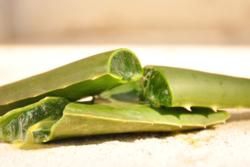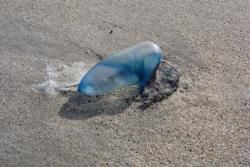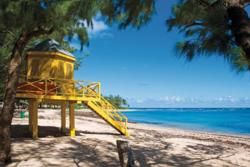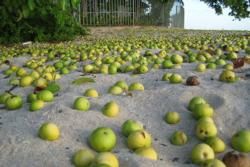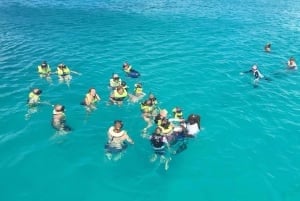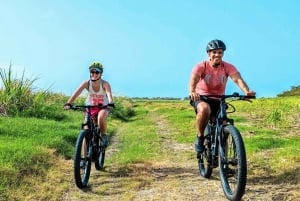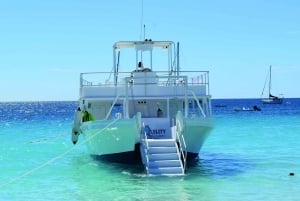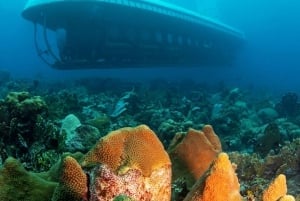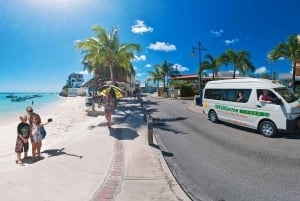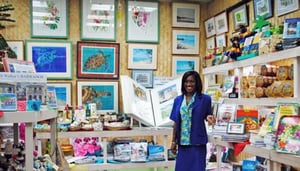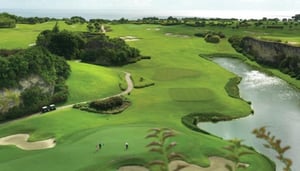Beach Safety
Barbados and its beaches are generally quite safe for swimming and otherwise enjoying the ocean. Be aware that though the sea may look calm, strong tides or undercurrents may be present. Pay attention to lifeguards and notices before venturing into the water.
Sunscreen
It is a good idea to purchase a good sunscreen with a high SPF on arrival in Barbados, especially if you will be spending lots of time outdoors, which we trust you will! Reapply as directed on the bottle and don't underestimate the sun's UV rays, even when staying in the shade. Should you get a bit sunburnt, aloe, grown locally is quite good for relieving this and often is sold by vendors on the beach. You can read more about aloe on page 88 of the Ins and Outs of Barbados magazine, the 2011 edition. It may be found
here or you may have noticed a printed copy in your hotel guestroom or lobby.
Swimming
The West and South coasts are recommended for swimming, especially for children and less strong swimmers. Do be aware of marine traffic though. Speed boats, jet skis and pleasure craft and always stay within designated swimming areas. Many beaches will have lifeguards on duty, and flags to indicate water conditions: Caution - yellow and Danger - red.
Swimming is not generally recommended on the Atlantic side - the East and North coasts, as it can be more dangerous, whith bigger and more aggressive waves. Often wading close to shore or in the shallow pools created by the rolling surf is more than enough to have a fine time on that side of the island. Red flags or signs are used as warnings when you should be most cautious venturing in or not at all. The exception to this rule would be for seasoned surfers who brave the waters of Bathsheba's Soup Bowl, High Rock and Parlour. Newbie surfers would be better off being taught in calmer South Coast waters.
Manchineel
Visitors should be aware that many of the beautiful trees that provide the shade on Barbados' beaches are Manchineel, especially on the West Coast. They look and smell like small green apples but are quite poisonous and can blister on contact. When it rains the water that drips from these trees can also blister the skin. These trees are to be avoided as a form of shelter and especially immediately following rainfall. They are often recognizable by a red band painted around the trunk.
Man-O-War
The small translucent bubbles with a light blue tint can be seen floating in the waters along the East Coast and South Coast or washed up on the beach. Once its tentacles make contact with your skin it can be quite a bad sting. Locals say that rubbing sand or raw aloe is the best immediate relief, and then there's good ol' antihistamine cream or calamine lotion.
Sea Urchin
A black sea egg with long spines. If you step on one and the spines are protruding from your skin, try to carefully remove them, if you like. If they are beneath the skin do not, I repeat DO NOT try to 'dig' them out as this could cause infection. They will eventually, like magic, dissolve and disappear. To be safe however soak with some form of antiseptic.
Photo by: Nick Hobgood (original photograph), Papa Lima Whiskey (photo edit)
Reef
Care should also be taken when swimming, snorkeling or diving, not to break off or in any other way damage the island's coral reef. Though beautiful, its preservation is integral in many ways to the island's quality of life. If you must have a seaside souvenir, a hunt for shells and sea-fan on the beach will usually turn up something good.
Photo by: Lucy Agace, published in The Barbados Dive Guide
Turtles
Sea turtles in Barbados are protected under local laws. It is against the law to in any way hamper the turtle's laying of eggs or hatching, which usually occurs on West and South coast beaches at night. If you happen to see any such activity please call the Turtle Hotline at +1 (246) 230 0142. It is also an offense to harvest these eggs.
When snorkeling it's safe to touch the turtles' backs gently and if directed by an experienced guide, to feed them. Avoid hitting, hugging, threatening or offending them in any other way, that is if you want to keep your fingers.
Also see General Safety to learn how to keep safe in the sun, as well as the shade.


